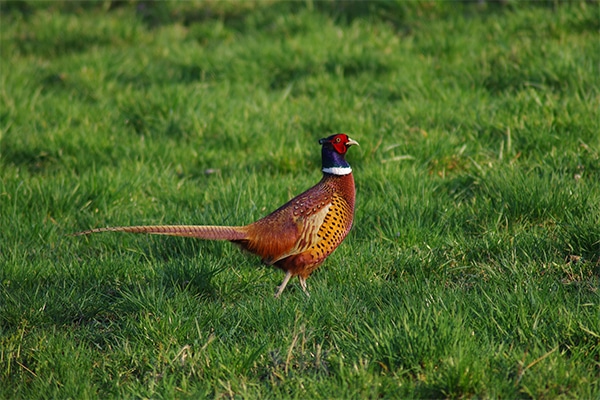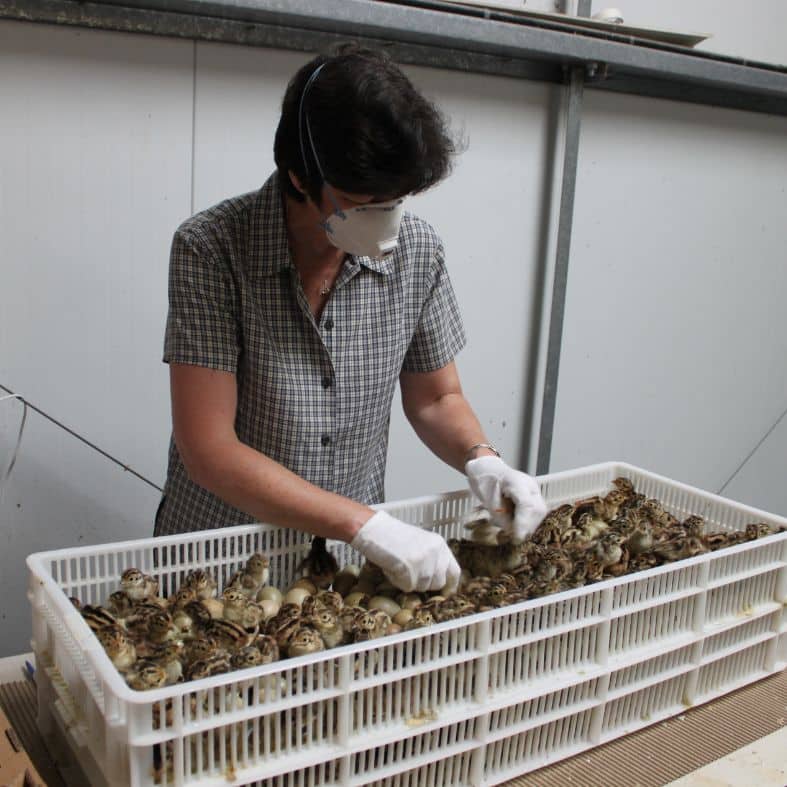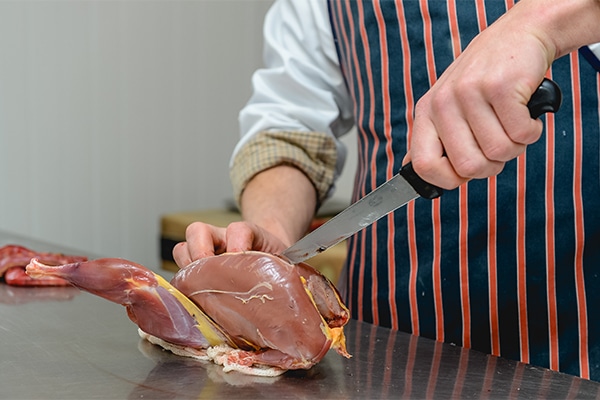
Pheasant release pen scoring system checklist
Pens are used for releasing both pheasants, providing safety, especially from ground predators. Find out how yours ranks.
Get information on the legal shooting season for mammals and birds in the UK.
Apply for funding for your project or make a donation today
Comprehensive information and advice from our specialist firearms team.
Everything you need to know about shotgun, rifle and airgun ammunition.
Find our up-to-date information, advice and links to government resources.
Everything you need to know on firearms law and licensing.
All the latest news and advice on general licences and how they affect you.


Home » Gamekeeping » Stock and poultry advice » Poultry registration form guidance
Previously, it was a legal requirement (since 2006) in Great Britain, for anyone keeping 50 or more poultry, to provide these details. Anyone keeping less than 50 birds was encouraged to provide this information voluntarily.
Following the previous avian influenza outbreak, there was a GB-wide consultation in 2023, and subsequently changes were announced in March 2024.
From 1 October 2024, in England and Wales, and 1 December in Scotland 2024, it became a legal requirement for anyone keeping any poultry or other captive birds (even a single bird) with certain very limited exceptions (such as budgerigars kept entirely indoors) to provide the details of such birds.
Any changes to the information provided must be reported within one month of these changes occurring and relevant details must also be provided within a month of keeping birds. All information must be reviewed, and if required, updated, as a minimum, on an annual basis.
In Northern Ireland, it has been a legal requirement to register details any poultry or other captive birds kept (irrespective of the numbers) since 2007.
The process of registration of details varies depending on which (home) country you keep birds in, as each has its own approach. Use the links below for more specific details:
In Scotland, you will need to provide relevant information via the Scottish Kept Bird Register (SKBR), which has been designed to allow for a simple registration process for all keepers. This is regardless of whether you were previously registered on the GB Poultry Register.
In England and Wales, if your birds are already registered under the previous ‘compulsory’ requirements then you do not need to do provide additional information (other than updating as per requirements).
If you previously registered your birds voluntarily, you would need to provide information again. Bird keepers can do this by email or letter, however, bird keepers are provided with a form (details below) to help them to easily ensure that they provide all the required information outlined in the legislation. Those who have less than 50 birds can also (optionally) use an online portal if they do not already have a County Parish Holding number (CPH).
Northern Ireland already has a separate register.
A CPH number is required by those who keep ‘livestock’ including birds. There are different ways these are issued in relation to ‘kept’ birds, e.g. they can be generated as part of the registration process. This will depend upon different factors such as which (home) country you keep birds in, and the numbers involved. Further information can be found by clicking on the above country links.
This will depend on which of the home countries you keep birds in, but generally the requirement to update applies to substantial changes, such as if you no longer keep birds, if the number of birds kept changes significantly or if the species kept changes. There is also a requirement to annually check your details kept, are correct.
You can find out which circumstances apply for your situation from the above country links.
This requirement to register applies to any birds which are kept (even one). There are certain limited exceptions such as budgies, parrots and cockatiels which are:
Any birds that are taken outdoors at any time (you are allowed to take an ‘indoor’ bird to a vet), for example to be exercised or trained, must be registered. As do other species such as chickens even when they are kept entirely indoors. If in any doubt you should check the details with the relevant government agencies.
Yes, even when they are kept for only a short period of time (see next question). However, it does not include wild gamebirds; so for instance a wounded bird collected to be immediately dispatched would fall outside of any requirements, but gamebirds caught up and kept for breeding purposes would need to be registered.
Birds held temporarily, i.e. less than a day, such as partridges that are ‘hard released’ would not need to be registered. However, any bird kept for longer than a day, including wild birds such as those collected and taken to a rescue centre, must be registered.
Yes, the relevant administrations have confirmed this requirement applies to all captive birds with access to the open air and thus includes call birds kept in Larsen and other cage traps (authorised by the relevant general or individual licence).
The administrations have acknowledged that they understand there are specific considerations with these birds, e.g. that these traps will need to be moved regularly around a shoot. They have advised that a postcode or relevant grid reference on the shoot would be acceptable as the ‘registered’ location.
Additionally, there is no need to register multiple traps, or update details of wild birds that have been caught and dispatched. However, all other requirements, e.g. those relating to animal welfare and general licence conditions (for the use of such traps), must be complied with.
Further details can be found from the relevant administration (links below). Each has a helpline, to assist people with completion of the relevant registration process.
Failure to provide the required information could leave the individual open to legal action. Local authorities are responsible for enforcement of this legislation, and non-compliance would be a criminal offence under section 73 of the Animal Health Act 1981, as amended.
Local authorities are likely to take a proportionate approach to enforcement, advising keepers of their duty. Formal enforcement action would likely be considered for continuous non-compliance, including the potential use of fixed penalty notices or prosecution, where relevant.
Your information is securely stored. APHA have confirmed that information provided can be used for disease control purposes, to ensure bird welfare, hygiene and other concerns. As such, APHA advises they may share relevant details with enforcement authorities relating to these areas, such as local authorities.
The Scottish Government have advised that, if the situation requires it, data from the Scottish Kept Bird Register may be shared with enforcement partners specifically involved in the fields of animal health and welfare, and in public health.

Pens are used for releasing both pheasants, providing safety, especially from ground predators. Find out how yours ranks.

All game preparation must be carried out with good food hygiene being the number one priority.

Woodlands can be managed to promote conservation and shooting through a number of techniques, one of which is creating and maintaining deadwood habitats.